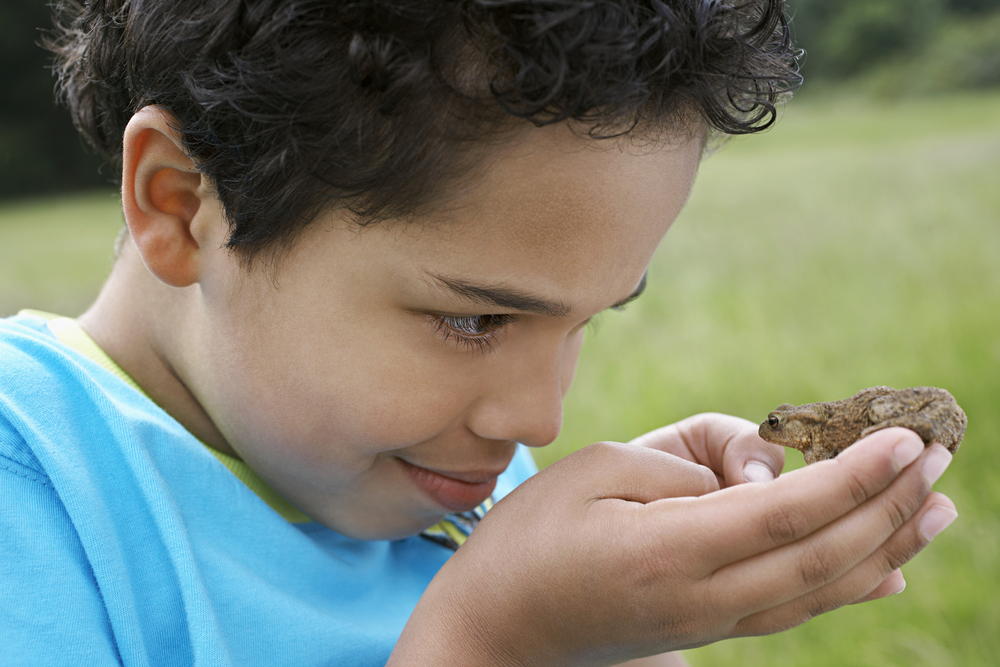Vocabulary Building Animals Worksheets for Ages 5-8
4 filtered results
-
From - To
Enhance your child's vocabulary with our engaging Vocabulary Building Animals Worksheets for ages 5-8! Designed to foster a love for learning, these worksheets introduce young learners to diverse animal-related terms through fun, interactive activities. Each worksheet encourages critical thinking and promotes language development by featuring colorful illustrations, matching games, and word searches. Ideal for home or classroom use, these resources support early literacy skills and cognitive growth. Help your child explore the fascinating world of animals while improving their vocabulary in a playful and educational way. Discover the joy of learning with these captivating worksheets today!
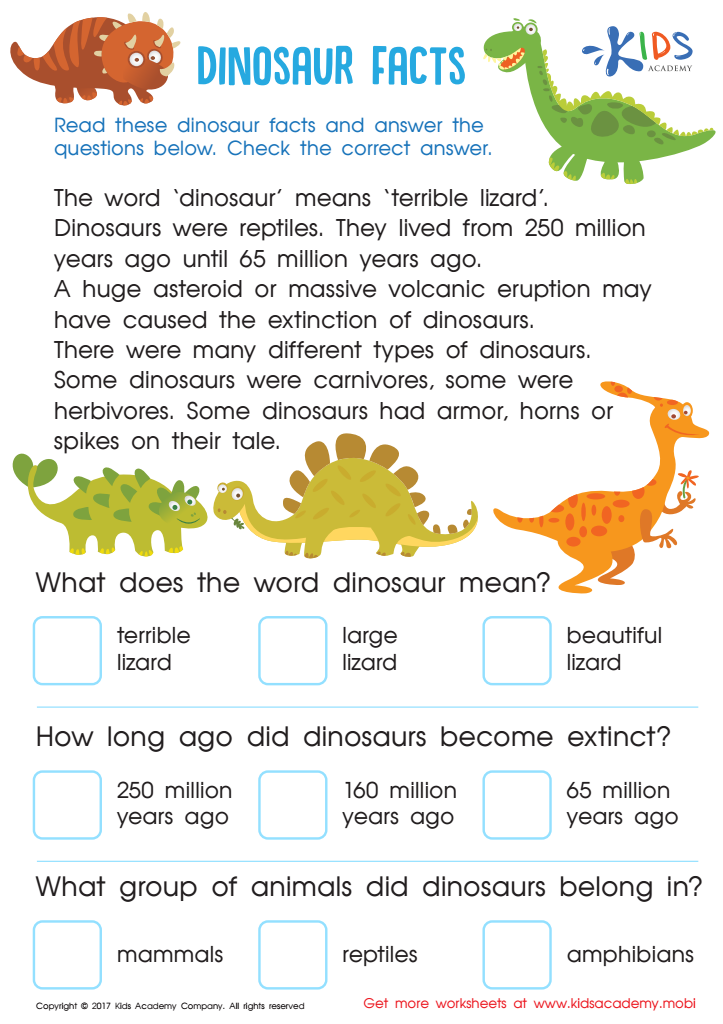

Dinosaur Facts Worksheet
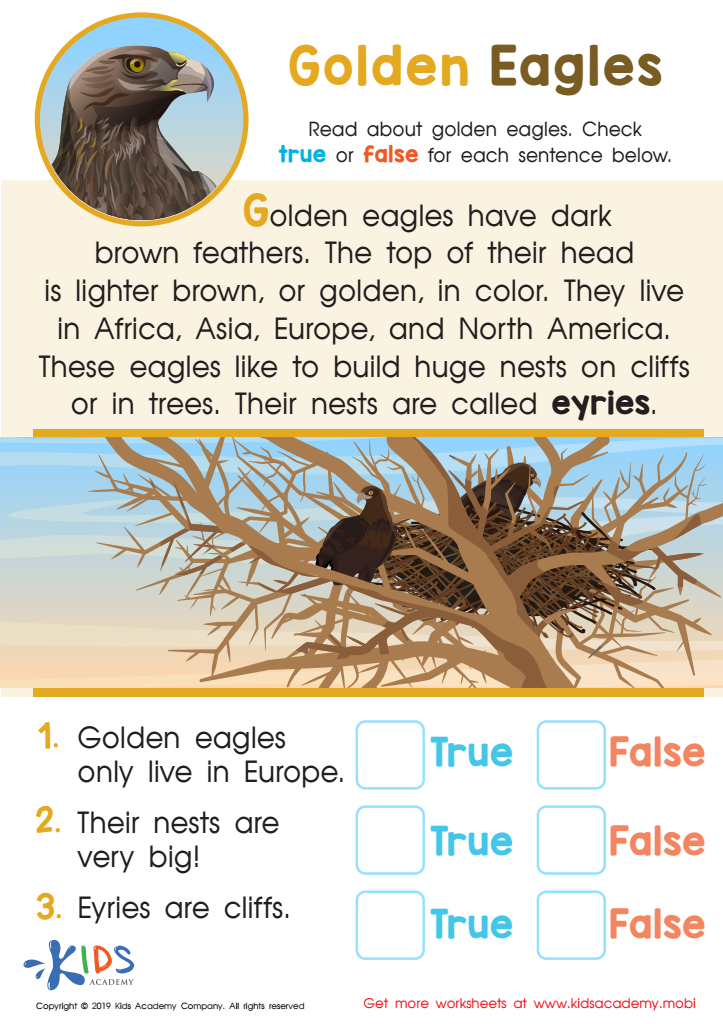

Golden Eagles Worksheet
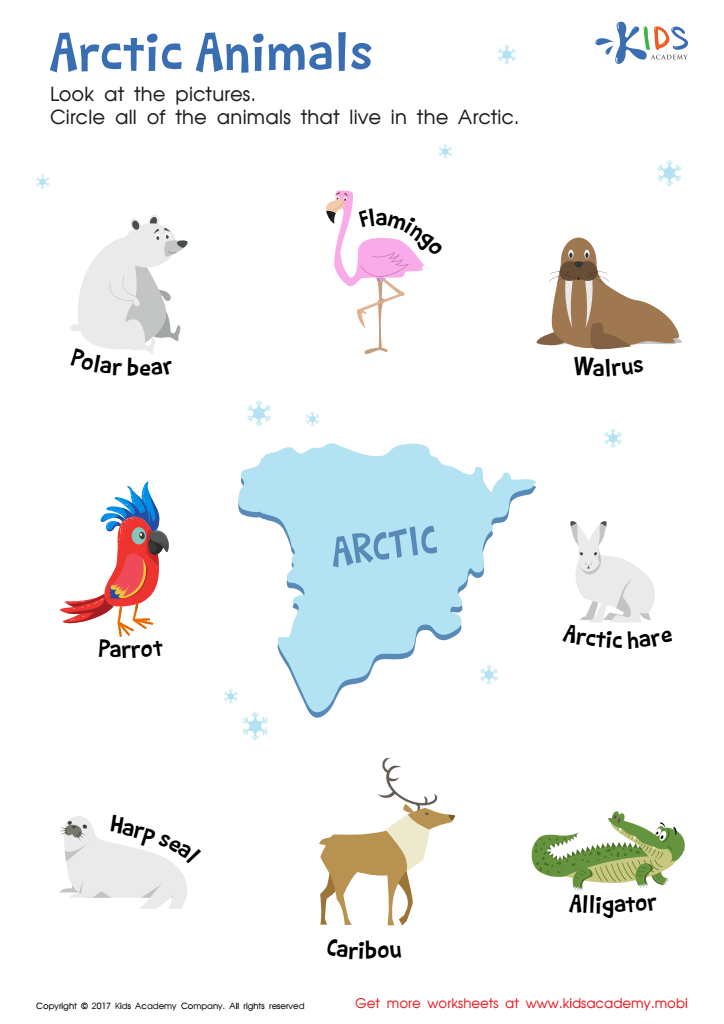

Arctic Animals Worksheet
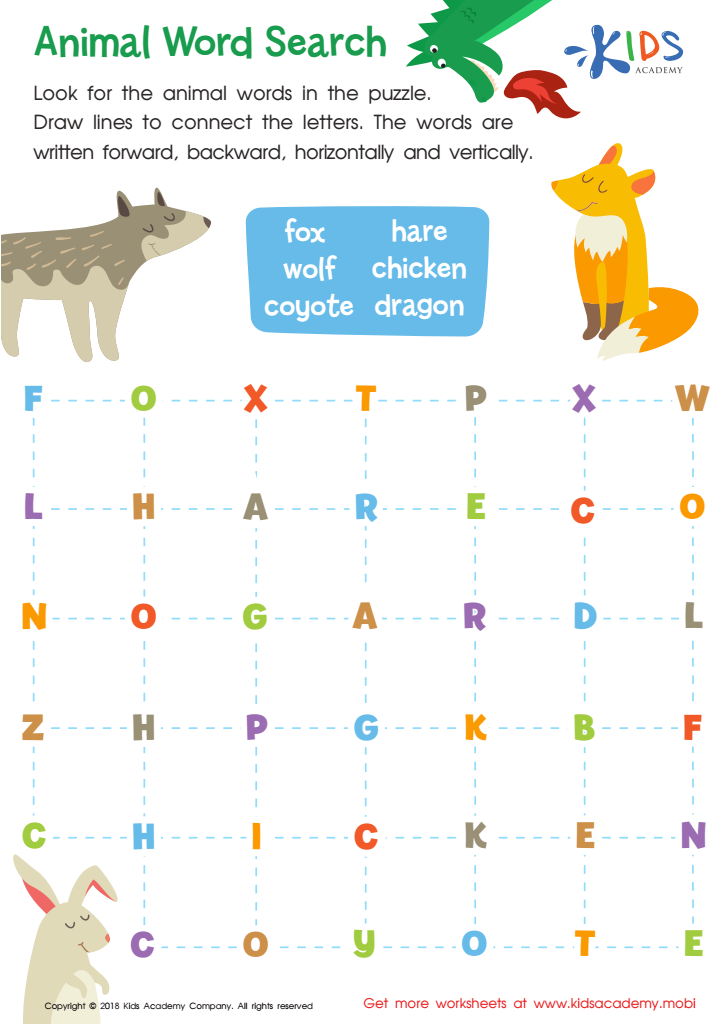

Animal Word Search Worksheet
Vocabulary building is a critical aspect of early childhood education, particularly for children aged 5-8, a stage when language skills flourish. Engaging children with vocabulary related to animals can be especially beneficial as it not only fosters linguistic development but also ignites curiosity about the natural world. For parents and teachers, using animals as a focal point can make learning more exciting and relatable.
When children learn animal-related vocabulary—such as "habitat," "predator," "mammal," and "endangered"—they expand their knowledge beyond mere words. This vocabulary provides the foundation for effective communication and enhances literacy skills, such as reading comprehension and writing. Furthermore, discussions about animals can lead to conversations about important topics like conservation and environmental awareness, nurturing empathy and critical thinking.
By connecting vocabulary building to engaging stories, games, or discussions involving animals, parents and teachers can create a dynamic learning environment. Such activities not only make vocabulary acquisition enjoyable but also promote social skills through collaborative learning. Ultimately, focusing on animal vocabulary helps shape well-rounded, informed, and expressive individuals who appreciate the world around them. This enhances academic readiness and fosters lifelong learning habits.

 Assign to My Students
Assign to My Students








